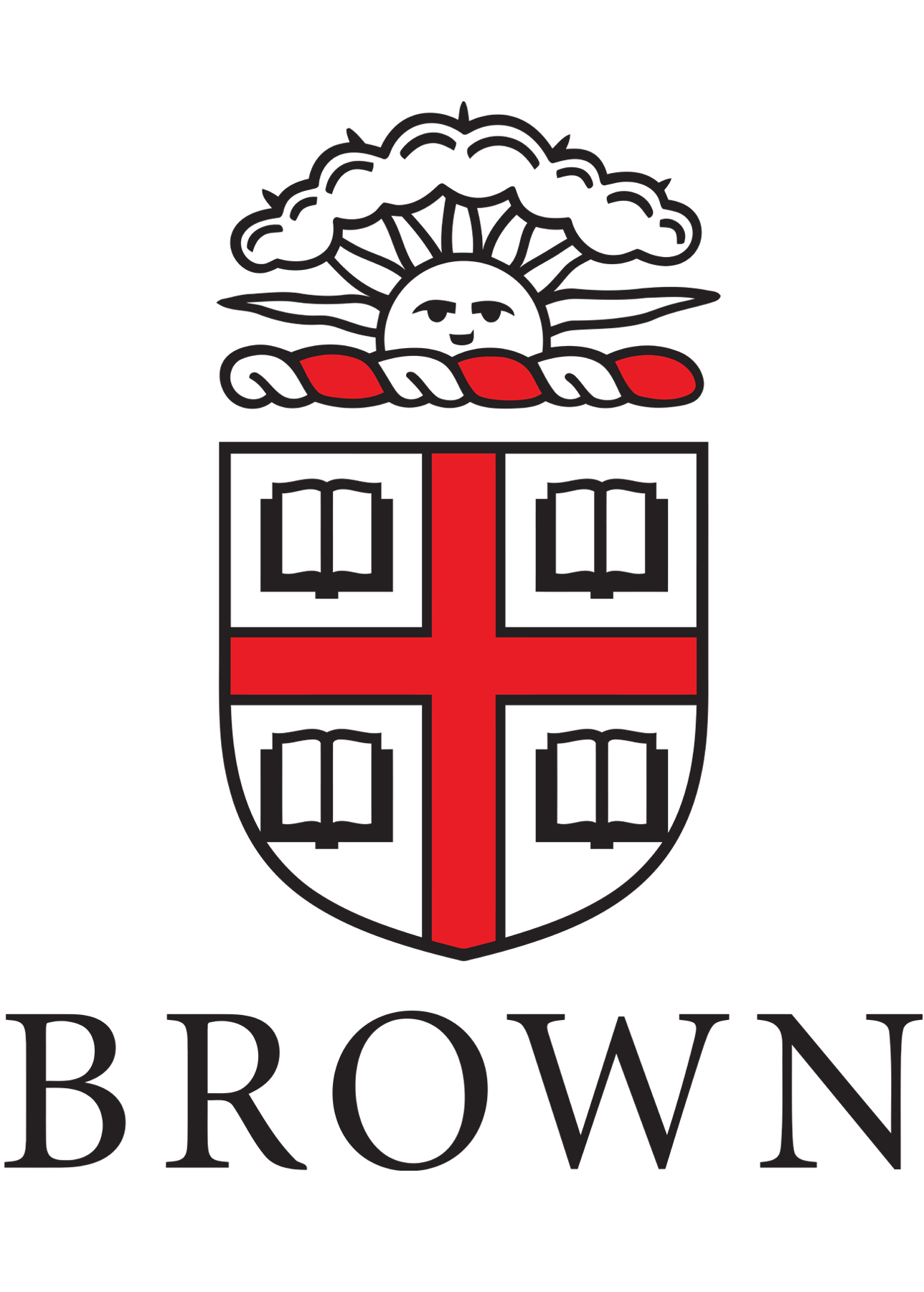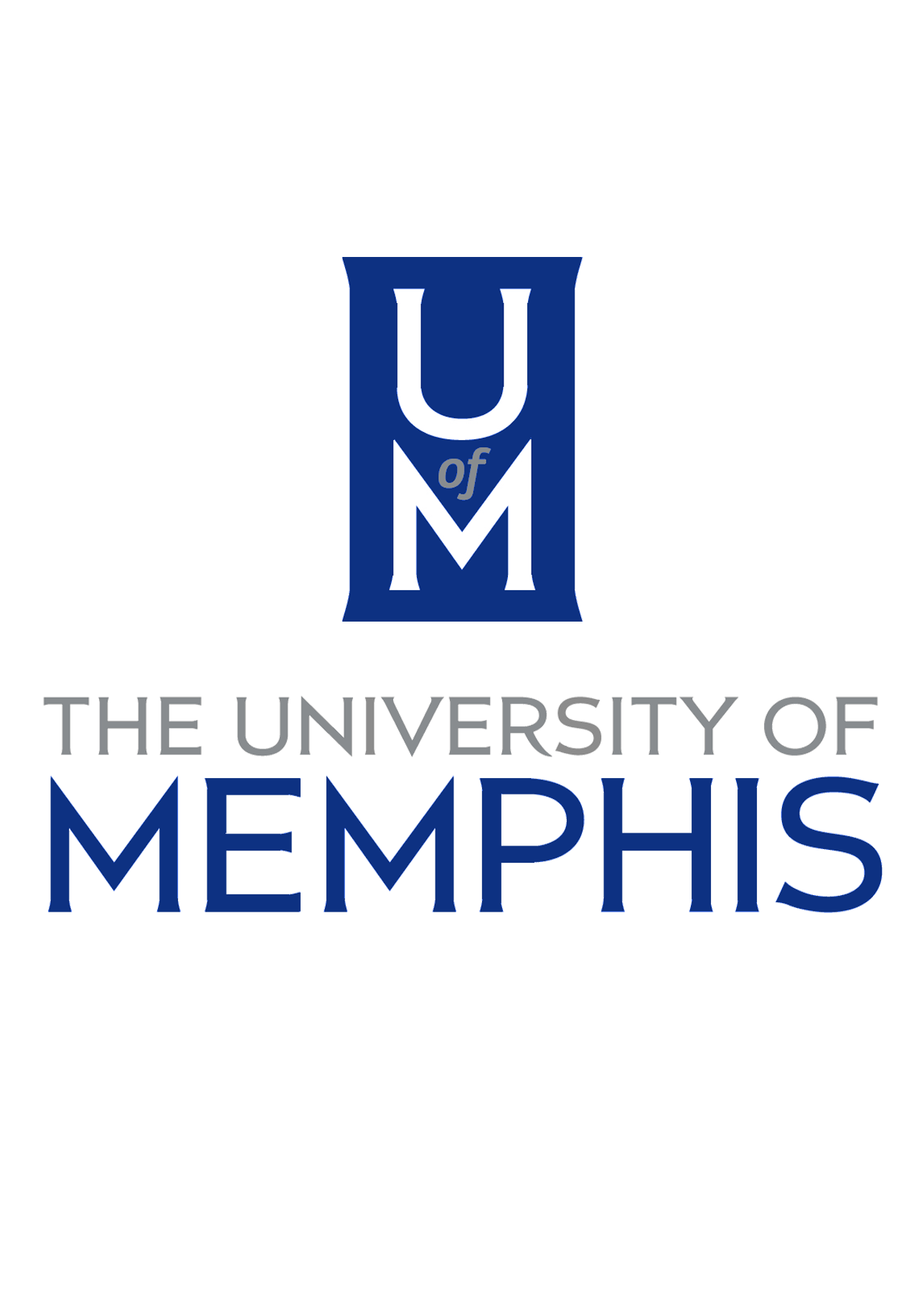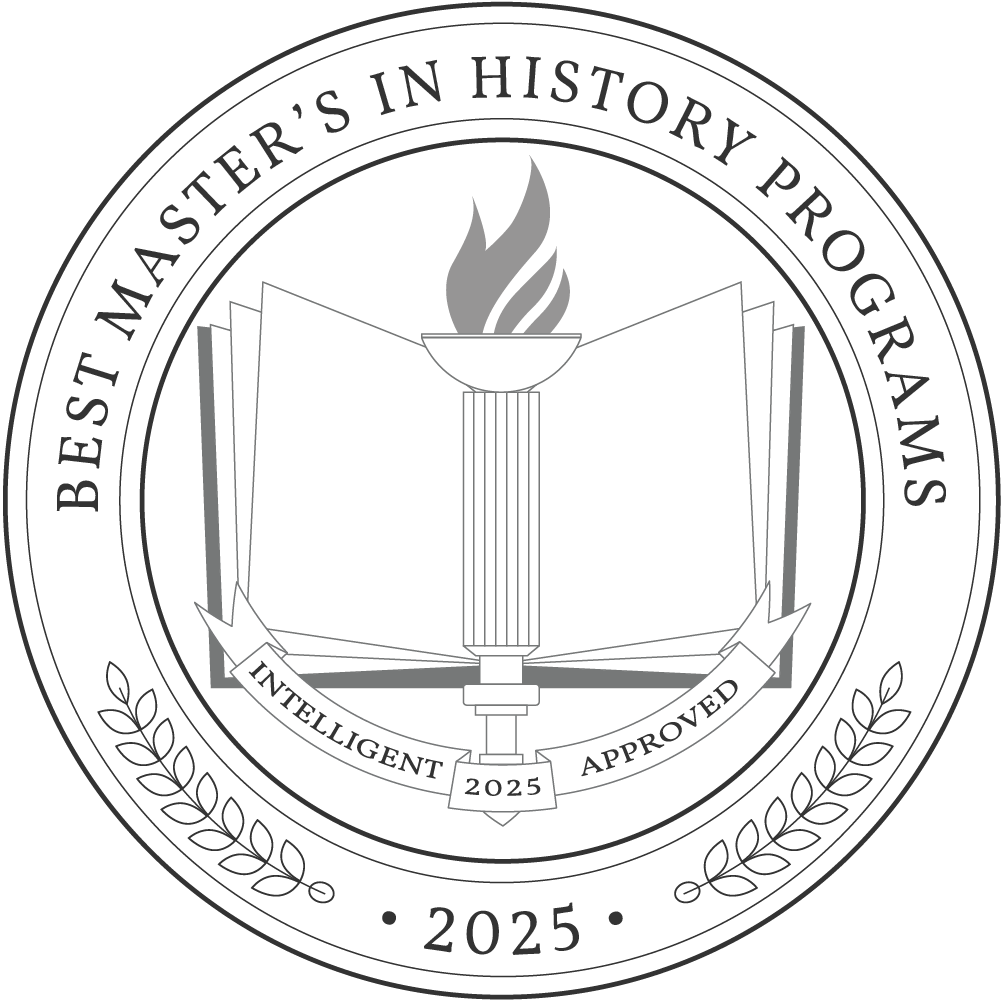History graduate degree programs offer comprehensive and interdisciplinary exploration of historical events through social, political, economic, and religious lenses. Graduates develop an in-depth understanding of cultural nuances through research and analysis, and their critical thinking, writing, and problem-solving skills qualify them for various career paths.
Most graduate history programs require between 30 and 45 credits, with tuition averaging $20,513 annually. Many programs offer online, part-time, and hybrid course delivery methods that accommodate student needs and circumstances.
The Bureau of Labor Statistics shows that history degree holders earn a median annual wage of $65,000 and mainly pursue educational, legal, and management occupations. Graduates often pursue careers as historical researchers, lawyers, secondary school teachers, public policy analysts, and archivists, earning a median annual wage between $57,120 and $145,760 across several career options.
Why Trust Us
The Intelligent.com Higher Education Team is dedicated to providing students with independent, equitable school and program rankings and well-researched resources. Our expert-driven articles cover topics related to online colleges and programs, paying for school, and career outlooks. We use data from the U.S. Department of Education’s College Scorecard, the National Center for Education Statistics, and other reputable educational and professional organizations. Our academic advisory team reviews content and verifies accuracy throughout the year for the most current information. Partnerships do not influence rankings or editorial decisions.
- Analyzed over 2,000 national, accredited, and nonprofit colleges and universities
- 800+ rankings pages are reviewed and updated yearly
- Content is informed by reputable sources, surveys, and interviews with academic advisors and other experts
- Over 100 data points are reviewed for accuracy and quality throughout the year, including sources
How we rank schools
Our list features the best History degree programs at top colleges nationwide. Each school featured is a nonprofit, accredited institution — either public or private — with a high standard of academic quality for post-secondary institutions.
We evaluated each school’s program on tuition costs, admission, retention and graduation rates, faculty, reputation, and the student resources provided for online students. We collected data from trusted sources like the National Center for Education Statistics, individual school and program websites, school admissions counselors, and other data sources. Then, we calculated the Intelligent Score on a scale of 0 to 100 based on the following criterion:
Academic Quality:
- Admission rate versus enrollment rate
- Retention rate of students who return after year one
- Accreditation status (regional and programmatic)
- Nonprofit status, both private and public institutions
Graduation Rate
- Overall graduation rate
- Total number of currently enrolled students, including diversity metrics
- Student-to-faculty ratio
Cost and ROI
- In-state and out-of-state per-credit tuition rates and fees
- Required credits to graduate
- Earning potential after graduation
- Availability of federal student loans, scholarships, and other financial aid options
Student Resources
- Available student services for online-only and hybrid programs
- On-campus amenities like tutoring centers and the number of libraries
Read more about our ranking methodology.
Best 30 Accredited Master’s in History Degree Programs
FiltersInstitution Type
Status
- Intelligent Score
- Alphabetically By University Name
- Acceptance Rate
- Enrollment
- In-state Graduate Tuition
- Out-of-state Graduate Tuition
- In-state Undergraduate Tuition
- Out-of-state Undergraduate Tuition

Columbia University
Intelligent Score: 99.28In-state: $57,864
Out-of-state: $57,864
In-state: $49,024
Out-of-state: $49,024
SAT: 1460-1570
ACT: 33-35
$2,262
On-Campus
Middle States Commission on Higher Education
30

Stanford University
Intelligent Score: 98.20In-state: $55,473
Out-of-state: $55,473
In-state: $54,315
Out-of-state: $54,315
SAT: 1420-1570
ACT: 31-35
$1,255
On-Campus
WASC Senior College & University Commission
45

Harvard Extension School
Intelligent Score: 96.31In-state: $49,653
Out-of-state: $49,653
In-state: $49,448
Out-of-state: $49,448
SAT: 1460-1580
ACT: 33-35
$805
On-Campus, Online
New England Commission of Higher Education
48

University of Pennsylvania
Intelligent Score: 94.94In-state: $53,166
Out-of-state: $53,166
In-state: $37,678
Out-of-state: $37,678
SAT: 1460-1570
ACT: 33-35
$1,299
On-Campus
Middle States Commission on Higher Education
32

University of Wisconsin - Madison
Intelligent Score: 93.78In-state: $9,273
Out-of-state: $37,161
In-state: $10,728
Out-of-state: $10,728
SAT: 1260-1460
ACT: 27-32
Resident: $801
Non-Resident: $1,634
On-Campus
Higher Learning Commission
30

University of Texas at Austin
Intelligent Score: 90.27In-state: $11,448
Out-of-state: $40,032
In-state: $12,028
Out-of-state: $12,028
SAT: 1210-1470
ACT: 26-33
Resident: $405
Non-Resident: $835
On-Campus
Southern Association of Colleges and Schools Commission on Colleges
30-33

New York University
Intelligent Score: 90.20In-state: $52,204
Out-of-state: $52,204
In-state: $34,704
Out-of-state: $34,704
SAT: 1370-1540
ACT: 31-34
$2,157
On-Campus
Middle States Commission on Higher Education
32

Brown University
Intelligent Score: 89.37In-state: $59,254
Out-of-state: $59,254
In-state: $59,254
Out-of-state: $59,254
SAT: 1440-1560
ACT: 33-35
$2,462
On-Campus
New England Commission of Higher Education
32

University of Virginia
Intelligent Score: 88.94In-state: $15,772
Out-of-state: $49,819
In-state: $17,076
Out-of-state: $17,076
SAT: 1320-1510
ACT: 30-34
Resident: $860
Non-Resident: $1,450
On-Campus
Southern Association of Colleges and Schools Commission on Colleges
36

Indiana University - Bloomington
Intelligent Score: 87.81In-state: $9,815
Out-of-state: $36,194
In-state: $9,786
Out-of-state: $9,786
SAT: 1120-1350
ACT: 24-31
Resident: $490
Non-Resident: $813
On-Campus
Higher Learning Commission
30

University of Illinois at Urbana - Champaign
Intelligent Score: 87.17In-state: $14,317
Out-of-state: $33,824
In-state: $15,016
Out-of-state: $15,016
SAT: 1200-1460
ACT: 27-33
In-State: $520
Out-of-State: $1,124
On-Campus
Higher Learning Commission
32

University of California, Davis
Intelligent Score: 87.07In-state: $38,556
Out-of-state: $68,628
In-state: $45,544
Out-of-state: $45,544
SAT: 1150-1410
ACT: 24 - 31
Resident: $320
Non-Resident: $760
On-Campus
Western Association of Schools and Colleges
45

University of Minnesota
Intelligent Score: 86.59In-state: $13,318
Out-of-state: $31,616
In-state: $17,580
Out-of-state: $17,580
SAT: 1240-1460
ACT: 25-31
Resident: $1,593
Non-Resident: $2,465
On-Campus
Higher Learning Commission
30

Georgetown University
Intelligent Score: 85.21In-state: $57,384
Out-of-state: $57,384
In-state: $53,136
Out-of-state: $53,136
SAT: 1380-1550
ACT: 31-35
$2,550
On-Campus
Middle States Commission on Higher Education
30

William & Mary
Intelligent Score: 83.49In-state: $17,168
Out-of-state: $40,089
In-state: $10,516
Out-of-state: $10,516
SAT: 1300-1490
ACT: 30-34
In-State: $507 - $760
Out-of-State: $1,168 - $1,752
On-Campus
Southern Association of Colleges and Schools Commission on Colleges
30

Missouri State University
Intelligent Score: 83.39In-state: $6,840
Out-of-state: $15,510
In-state: $5,436
Out-of-state: $5,436
SAT: 1020-1220
ACT: 21-27
Resident: $415
Non-Resident: $761
On-Campus, Online
Higher Learning Commission
30

University of Memphis
Intelligent Score: 82.70In-state: $8,208
Out-of-state: $12,048
In-state: $9,216
Out-of-state: $9,216
SAT: 990-1200
ACT: 19-26
Resident: $532
Non-Resident: $755
On-Campus
Southern Association of Colleges and Schools Commission on Colleges
33

University of Nebraska at Kearney
Intelligent Score: 82.51In-state: $27,426
Out-of-state: $34,430
In-state: $24,810
Out-of-state: $24,810
SAT: 970-1200
ACT: 19-25
Resident: $268
Non-Resident: $589
On-Campus, Online
Higher Learning Commission
36
How to Choose a Master’s in History Program
Choose your area of study
A master’s degree in history helps students develop advanced skills in researching and analyzing historical events concerning politics, economics, technology, social evolution, and intellectual development. Within institutions’ humanities departments, Master of Arts in History degree programs focus on understanding events, cultures, and attitudes of history and how they manifest and influence modern society.
College graduates with history degrees can pursue a variety of roles across academic and professional fields, such as community college instructor, university professor, historian, archivist, curator, and preservationist. History graduate programs also develop critical thinking, communication, and research skills that transfer to many professions.
Most master’s degree in history programs also offer specializations or concentrations that can influence students’ education and career tracks. Consider career objectives, personal interests, and other factors to choose a well-aligned program and specialization. History specialization options generally categorize subfields according to specific geography or eras and may include:
- Ancient history
- Medieval history
- Science and technology
- Medicine
- Political science
- Liberal arts
- Global history
- Latin America
- South Asia
- Ottoman Empire and the Middle East
- Early modern Europe
Research schools and programs
Visit the websites for master’s degree in history programs to learn more about curriculums, concentrations, and other details. Contact admissions counselors or program representatives for additional insight or recommendations. School websites, counselors, and social media can also direct you to further informational sources, such as in-person or virtual campus tours, information sessions, and other events for prospective history students.
Prioritize regionally accredited schools throughout your research. You should look up any school you’re considering in the Department of Education’s Database of Accredited Postsecondary Institutions and Programs, as this resource will show you each program’s accreditation status. Accredited programs are eligible for federal student aid funding, and credits from these programs can transfer to other accredited schools. Most master’s degree programs also require applicants to earn their undergraduate degree from an accredited school, and employers may require accredited education from job applicants.
Prepare for tests and applications
Each institution has its respective admission requirements and processes, but most require the following:
- Application form and fees
- College or university transcripts
- Letter(s) of recommendation from professors or employers
- Personal essay
- Statement of purpose
- Current resume or CV highlighting relevant experience
- GRE or GMAT scores
- TOEFL scores (for history students educated in a non-English language)
Some admissions require historical analysis essays to demonstrate students’ abilities in critical thinking, academic writing, and historical comprehension. Students typically must have an undergraduate degree in history or a related field. If their educational background lacks history, they may need to complete certain historical undergraduate courses or demonstrate equivalent experience in a professional role before they gain admittance to the master’s degree program.
Select your program
Schools and programs offer varying experiences, resources, and opportunities. To select a program, refer back to your career and educational goals and consider other essential parameters for the success of your education to choose a program. For example, course delivery and logistics are often more important for history students with careers, families, and other obligations outside of school that necessitate a flexible academic schedule with part-time, online, or hybrid options.
Consider other factors when selecting your program, such as:
- Tuition cost
- Location
- Graduation requirements
- Final project or thesis
- Faculty
- Completion time
Determine how you’ll pay for your degree
Degree costs entail more than just tuition. Contact your institution’s financial aid office and program advisors to confirm tuition and fees and request information for other estimated expenses.
Graduate students typically fund their education with a blend of savings, loans, and other financial aid, and they may have access to history fellowship or assistantship roles that cover tuition or offer a stipend or salary.
History students should submit the Free Application for Federal Student Aid (FAFSA) regardless of financial circumstances. This government program awards students loans, grants, scholarships, and other financial aid based on their demonstrated need. Graduate students may apply for direct unsubsidized loans and Grad PLUS loans. Institutions and private organizations may also offer funding based on merit or need, and employers may provide tuition assistance benefits for students enrolled in accredited programs.
What Can You Expect From a Master’s in History Program
A Master of Arts in History program develops student perspectives and understanding of historical events. With a comprehensive and interdisciplinary approach, students employ evidential, comparative, and theoretical frameworks to cultivate critical-thinking skills and historical insights.
Students typically choose a particular major or specialization in which they complete research and present either a final thesis, capstone research project, or portfolio of written work. Programs may also require students to complete internships or research practicums and to work with a mentor throughout their degree.
Most master’s degree in history programs require between 30 and 45 credits, which students satisfy by completing core and elective seminars and directed reading courses. Depending on graduate requirements, study pacing, and other factors, most history graduate programs take about two years.
Potential courses you’ll take in a master’s in history program
- Professional Study of History. This course introduces and discusses history as a profession and explores traditions and philosophy in historical writing, techniques, and analytical tools from past and current historians. Master’s students may gain experience in digital skills such as mapping, visual research presentation, and publishing.
- History of Gender. Gender history examines the development of gender and sexuality and uses classic research methods, theoretical frameworks, and new approaches to explore transnational gender perspectives. History students may study how gender and sexuality intersect with social, political, and economic transformations.
- Environmental History. This course surveys the themes, legal frameworks, and social movements in ecological history. Topics may include industrialization, urbanization, and agriculturalism.
- Early Modern British History. In this course, master’s students examine early modern England’s social, cultural, and political history, including the Renaissance, the Reformation, the British Civil Wars, and the transformation of the Church. Students consider primary sources and secondary works as they analyze topics such as class conflict, radical religion, and science.
History Degree Frequently Asked Questions
How do I apply to a master's in history degree program?
Most institutions and programs have an online admissions portal that guides applicants through the process and outlines any required documents or information, such as transcripts, test scores, and essays. Admissions counselors can also provide guidance, confirm deadlines, and offer insight to optimize the application process.
How much does a master's in history degree cost?
Master’s program tuition averages $20,513 yearly. Remember that private and out-of-state institutions usually have higher tuition than public or in-state schools. To better understand your financial picture, create a budget that reflects your total costs, such as books and materials, housing, and other expenses. Scholarships, grants, loans, and other funding can also affect your upfront and total costs.
How long does it take to earn a master's in history degree?
Most graduate history degree programs require between 30 and 45 credits and completion of internships, capstone projects, and thesis. Students can typically satisfy these requirements within two years of full-time study.

